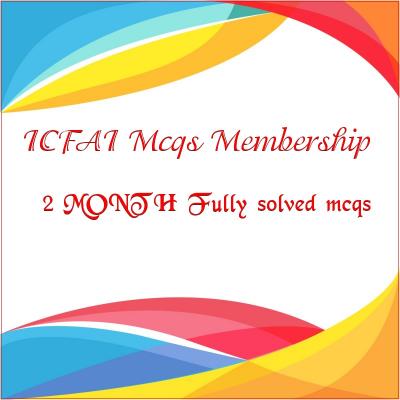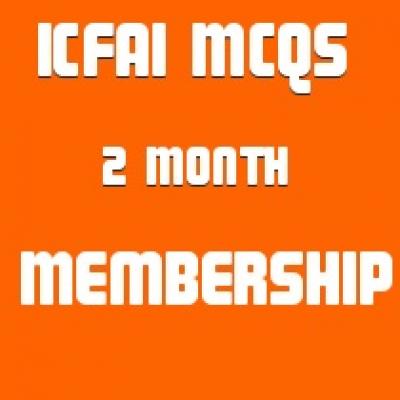BUSINESS COMMUNICATION
Price:
Rs500
Case 1:
Everest Textile Mills
During the days of recession and growing unemployment, a job is considered a God-sent
opportunity. There is not much choice in terms of place of work, position, or salary. The very first reaction is the decision to a job offer is to accept the opportunity of being employed. Soon after completing his four-year program of B.E. (Civil) with a high first division, Sohan applied for the position of Assistant Engineer in response to an advertisement by the Building & Construction department of Everest Textile Mills. The mill was owned by the Kashiramkas, a well known business family of Rajasthan. It was situated in Tipli, a semi modernized village on the border of Haryana and Rajasthan. The village was connected only by roadways. Nothing could dampen Sohan’s enthusiasm to attend the interview and, if selected, accept the offer. At the interview, Sohan was a bit surprised to see the members of the selection committee. They all looked old, conservative, and semi-literate.
The chief estate supervisor, the chief engineer, the project manager, and the mill owner himself were all either diploma holders or non-matriculates. Sohan was able to sense their uneasiness whenever he answered their questions in English. The committee members were all undoubtedly highly experienced persons with practical knowledge of construction work, design, material quality, soil integrity, and so on. The chief estate supervisor asked very searching, technical questions on structure and load, but in Rajasthani. When Sohan answered in English, the interviewer kept nodding and looked towards the other panelists when Sohan finished talking. The behavior of the chief engineer was similar. He framed a project in broken Hindi, with a Bengali accent, and kept on saying “yes yes,” and “thank you,” when Sohan discussed the answer; he too turned towards Mr Kashiramka when Sohan finished talking. Finally, Mr Kashiramka asked Sohan if he would be able to live in a village and adjust to the rural life of the countryside.
Sohan told him that he was a person of simple living and would have little difficulty in adapting. Mr Kashiramka appreciated Sohan’s positive attitude and asked the chief engineer to show him the construction site. Sohan toured the mill, which was spread out over a large distance, with hundreds of workers engaged in various sections. He was also taken to the Building & Construction department, which was located in a big, open area of the mill. It included the offices of the estate supervisor, the chief engineer, and four supervisors, the materials room, the fire brigade station, the power house, and the generator room. The size of the mill and, especially, its Building & Construction department left Sohan highly impressed, and he decided to join the mill if offered the position. Before Sohan left, Mr Kashiramka told him about the close-knit relations of the workers.
The mill was nearly 30 years old, and most of its employees were men who had been working there since its beginning. The workers had grown up together in the mill and had become family to each other. They had learnt their work through experience and looked down upon modern technical education and engineering degrees. They believed in practical knowledge and valued the expertise of their chief engineer, who was just a diploma-holder. They especially admired the insights and management skills of their estate supervisor, who could not even sign his name in English, but knew how to plan and get things done and helped the workers in times of need. During the conversation, Mr Kashiramka was intently studying Sohan, a newly graduated engineer hailing from an urban background. In fact, he would be the first university-educated engineer to join the homogeneous group of self-taught workers with no formal qualifications. On his first day, the workers looked at Sohan indifferently as he went around introducing himself as the new assistant engineer.
Later, whenever he approached any group of workers and tried to start a conversation, they would remain tightlipped. Gradually, he found that the supervisors would just shrug their shoulders whenever he suggested any change in their way of doing a particular job. Sohan was increasingly realizing that it was never easy to be accepted into a well-knit clan of people having their own idea on modern, technical education. One day, in a meeting with contractors, supervisors, and senior workers from different sections, when Sohan wanted to support the plan of the chief engineer, the workers and the supervisor did not allow him to speak. When he tried to speak, they would interrupt and make distracting background noises. At the end of the meeting, the supervisor sitting next to Sohan deliberately stood up in such a way that Sohan’s cup of tea fell onto his lap and hot tea spilled all over him. The casual way in which the supervisor swung around and left the room gave the impression that he had not even seen what he had done.
Questions:
-
What conclusions do you think Sohan, the new assistant engineer, and the mill’s employees reached about each other on the basis of non-verbal clues?
-
It seems that Mr Kashiramka, the owner of the mill, was not sure at the interview that Sohan, an urban, university-educated engineer, would be able to adjust to the rural mill work environment and culture. Was he right? What could be the reason for this skepticism?
-
Sohan does not respond or react to the workers’ non-verbal expressions of their attitude towards him. Would his approach have been more effective if it were supported by some verbal communication?
-
Could this situation be avoided? If no, why? If yes, how?
1. Case study solved answers
2. pdf/word
3. Fully Solved with answers







